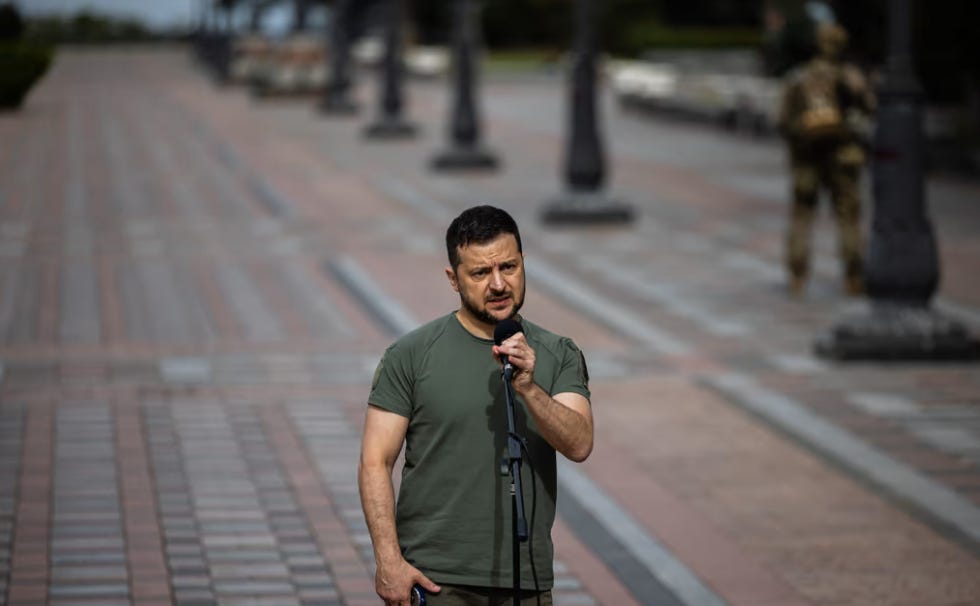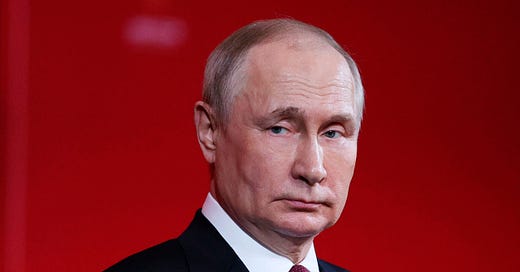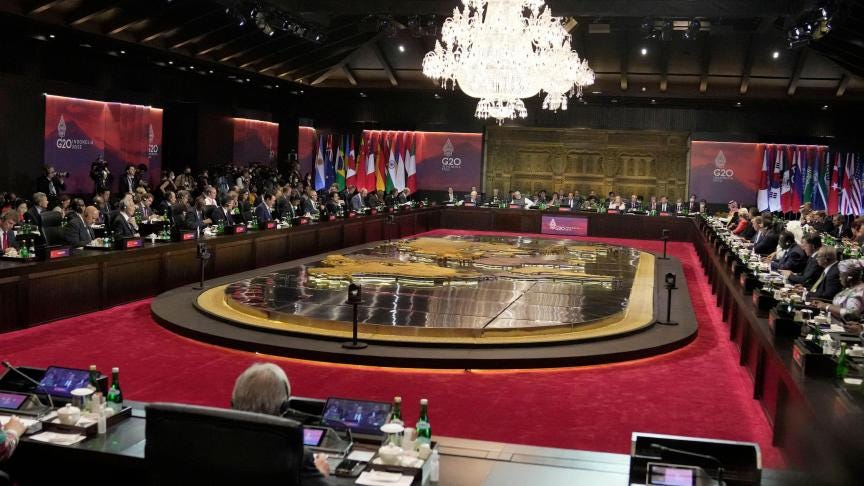G20 dispatch—or is it G19 now?
One notable guest is missing from the G20 summit in Indonesia. Can you guess who that is?
Yesterday saw the opening of the G20. For yours faithfully, this day had a particular savor. I started this newsletter with the G7 of June 2022 and questioned, in the first podcast of The Beubble, the possibility for EU leaders to meet with Russia’s Vladimir Putin in Bali.
It seems that world politics had the same difficulty as me to articulate how such a meeting would be possible, and fate decided that, after all, Vladimir Putin should better stay home.
After a day of talks, debates, and top-level meetings, here are the main takeaways of this year’s meeting of the world’s 20 largest economies.
One guest less
As hinted in the introduction, the Kremlin confirmed that Vladimir Putin will not attend Bali’s meetings. Sergei Lavrov, Russia's foreign minister will carry the voice of his master.
Commentators consider that Putin decided to stay in Moscow to avoid making room for potential putschists. Putin, it seems, is losing his grip at the head of the Russian State as the country’s economy collapses under Western sanctions and the fallout of what is now considered by many in the motherland a failed invasion of Ukraine.
It will also be the chance for Putin to pass on awkward encounters with western counterparts and—perhaps more importantly—avoid facing raising criticism from China, which strongly discouraged a nuclear escalation of the conflict.

“G19” special guest: Volodymyr Zelenskyy
Ukrainian President Volodimir Zelenskyy consecrated the absence of Vladimir Putin by thanking the “G19” for its support.
Only days after the liberation of Kherson—the only regional capital that the Russian army ever controlled—he addressed the delegates of the G20 via a video call.
“For Ukraine, this liberation operation of our defense forces is reminiscent of many battles of the past, which became turning points in the wars of the past,” Zelenskyy said in his speech to world leaders, among them U.S. President Joe Biden — and, according to a Western diplomat, Russian Foreign Minister Sergey Lavrov. “It is like, for example, D-Day — the landing of the allies in Normandy.” — Politico
On the subject of nuclear threats, Zelenskyy added that “There are and cannot be any excuses for nuclear blackmail. And I thank you, dear G19, for making this clear.”
EU leaders’ agenda
Besides the conflict in Ukraine, many other topics will be discussed by the world leaders attending the G20. Among them are the renewal of the grain shipping agreement, the recovery from the pandemic, the Western position on China, climate change, etc.
According to Politico:
European Council President Charles Michel […] addressed the G20, focusing on the need to keep exports of grain flowing through the Black Sea, as Moscow has threatened to torpedo the U.N.-brokered deal that reopened Ukraine’s ports. “It is important that this Black Sea initiative be continued,” Michel said during the closed-door session, according to a diplomat.
[…] Speaking during a press conference, the Council chief lauded the fact that presidents Joe Biden of the U.S. and Xi Jinping of China met in Bali. “It’s always positive when there is a space for political dialogue, even if there are different opinions on many topics,” Michel said, reiterating the EU position on seeking to avoid over-dependence on China for technology.
On her side, Ursula von der Leyen, President of the European Commission, will host, together with US Joe Biden and Indonesia Joko Widodo, an event on the Partnership for Global Infrastructure and Investment, which goal is to secure $600 billion of infrastructure investments over the next five years, as a way to circumvent China’s Belt and Road Initiative.






